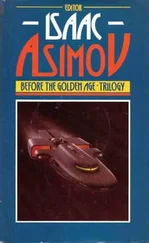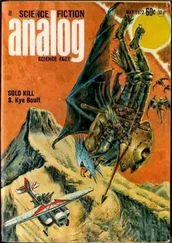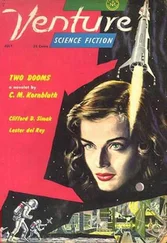Clifford Simak - Ring Around the Sun
Здесь есть возможность читать онлайн «Clifford Simak - Ring Around the Sun» весь текст электронной книги совершенно бесплатно (целиком полную версию без сокращений). В некоторых случаях можно слушать аудио, скачать через торрент в формате fb2 и присутствует краткое содержание. Жанр: Фантастика и фэнтези, на английском языке. Описание произведения, (предисловие) а так же отзывы посетителей доступны на портале библиотеки ЛибКат.
- Название:Ring Around the Sun
- Автор:
- Жанр:
- Год:неизвестен
- ISBN:нет данных
- Рейтинг книги:5 / 5. Голосов: 1
-
Избранное:Добавить в избранное
- Отзывы:
-
Ваша оценка:
- 100
- 1
- 2
- 3
- 4
- 5
Ring Around the Sun: краткое содержание, описание и аннотация
Предлагаем к чтению аннотацию, описание, краткое содержание или предисловие (зависит от того, что написал сам автор книги «Ring Around the Sun»). Если вы не нашли необходимую информацию о книге — напишите в комментариях, мы постараемся отыскать её.
Ring Around the Sun — читать онлайн бесплатно полную книгу (весь текст) целиком
Ниже представлен текст книги, разбитый по страницам. Система сохранения места последней прочитанной страницы, позволяет с удобством читать онлайн бесплатно книгу «Ring Around the Sun», без необходимости каждый раз заново искать на чём Вы остановились. Поставьте закладку, и сможете в любой момент перейти на страницу, на которой закончили чтение.
Интервал:
Закладка:
He stood there then, as he stood now, and knew there was an answer somewhere, a clue, if only he knew where to find it.
The phone rang again and he went to answer it. It was Eb, asking: "What do you think of it?"
"I don't know what to think," said Vickers.
"He's in the river," Eb maintained. "That is where he is. That's what I told the sheriff. They'll start dragging tomorrow morning as soon as the sun is up."
"I don't know," said Vickers, "Maybe you are right, but I don't think that he is dead."
"Why don't you think so, Jay?"
"No reason in the world," said Vickers. "No actual, solid reason. Just a hunch."
"The reason I called," Eb told him, "is that I got some of those Forever cars. Came in this afternoon. Thought maybe you might want one of them."
"I hadn't thought much about it, Eb, to tell you the truth. But I might be interested."
"I'll bring one up in the morning," said Eb. "Give you a chance to try it out. See what you think of it."
"That'll be fine," said Vickers.
"All right, then," said Eb. "See you in the morning."
Vickers went back to the desk and picked up the letters. There were no bills. Of the seven letters, six were advertising matter, the seventh was in a plain white envelope addressed in a craggy hand.
He tore it open. There was one sheet of white note paper, neatly folded.
He unfolded it and read:
_My dear friend Vickers:_
_I hope that you are not unduly worn out by the strenuous efforts which you undoubtedly will have thrown into the search for me today._
_ I feel very keenly that my actions will impose upon the kind people of this excellent village a most unseemly amount of running around to the neglect of their business, although I do not doubt that they will enjoy it most thoroughly._
_I feel that I can trust your understanding not to reveal the fact of this letter nor to engage any further than is necessary to convince our neighbors of your kindly intentions in what must necessarily be a futile hunt for me. I can assure you that I am most happy and that only the necessity of the moment made me do what I have done._
_ I am writing this note for two reasons: Firstly, to quiet any fear you may feel for me. Secondly, to presume upon our friendship to the point of giving some unsolicited advice._
_ It has seemed to me for some time now that you have been confining yourself too closely to your work and that a holiday might be an excellent idea for someone in your situation. It might be that a visit to your childhood scene, to walk down the paths you walked when you were a boy, might clear away the dust and make you see with clearer eyes._
_ Your friend,_
_Horton Flanders._
CHAPTER FIFTEEN
I WILL not go, thought Vickers. I cannot go. The place means nothing to me now and I do not want it to mean anything now that it is forgotten — now that it is forgotten after all these years of trying to forget it.
He could have shut his eyes and seen it — the yellow clay of the rain-washed cornfields, the roads all white with dust winding through the valleys and along the ridgetops, the lonely mailboxes sitting on forlornly leaning fence posts stuck into the ground, the sagging gates, the weather-beaten houses, the scraggy cattle coming down the lane, following the rutted path that their hoofs had made, the mangy dogs that ran out and barked at you when you drove past their farms.
If I go back they'll ask me why I came and how I'm getting on. "Too bad about your Pa, he was a damn good man." They'd sit on the upturned boxes in front of the general store and chew slowly on their cuds of tobacco and spit out on the sidewalk and look at him out of slanted eyes and say: "So you write books. By God, some day I'll have to read one of your books; I never heard of them."
He'd go to the cemetery and stand before a stone with his hat held in his hand and listen to the wind moan in the mighty pines that grew all around the cemetery fence and he'd think, if only I could have amounted to something in time that you could have known, so that the two of you could have been proud of me and bragged about me a little when the neighbors dropped in for a visit — but of course, I never did.
He'd drive the roads he'd known when he was a boy and stop the car beside the creek and get out and climb the barbed wire fence and walk down to the hole where he always caught the chubs and the stream would be a trickle and the hole would be a muddy widening of the trickle and the tree where he had sat would be gone in some spring-time flood. He'd look at the hills and they would be familiar and at the same time strange, and he would try to puzzle out what was wrong with them and he could not tell for the life of him what was wrong with them and he'd go on, thinking about the creek and the unfamiliar hills, feeling lonelier by the minute. And finally in the end, he'd flee. He would press the accelerator to the boards and cling to the wheel and try not to think.
And he would — finally, he admitted it — he would drive past the great brick house with the portico and the fanlights above the door. He would drive very slowly and he would look at it and he'd see how the shutters had come loose and were sagging and how the paint was flaking and how the roses that had bloomed beside the gate had died out in some cold and blustery winter.
I won't go, he said. I will not go.
And yet, perhaps, he should.
It might clear away the dust, Flanders had written, might make you see with clearer eyes.
Might make him see _what_ with clearer eyes?
Was there something back there in his boyhood lanes that might explain this situation that had burst upon him, some hidden fact, some abstract symbol, that he had missed before? Some thing, perhaps, that he had seen before, even many times, and had not recognized?
Or was he imagining things, reading significance into words that had no significance? How could he be sure that Horton Flanders with his shabby suit and ridiculous cane had anything to do with the story that Crawford had spelled out about humanity standing with its back against the wall?
There was no evidence at all.
Yet Flanders had disappeared and had written him a letter.
Clear away the dust, Flanders had written, so that you may see the better. And all that he might have meant was that he should clear away the dust so that he could write the better, so that the manuscript which lay upon the desk might be the better piece of work because its creator had looked on life and fellow man with eyes that were clear of dust. The dust of prejudice, perhaps, or the dust of vanity, or simply the dust of not seeing as sharply as one should.
Vickers put down a hand on the manuscript and ruffled its pages with his thumb, an absent, almost loving gesture. So little done, he thought, so much still to do.
Now, for two whole days, he'd done nothing. Two full days wasted.
To do the writing that should be done, he must be able to sit down calmly and concentrate, shut out the world and then let the world come in to him, a little at a time, a highly selected world that could be analyzed and set up with a clarity and sharpness that could not be mistaken.
Calmly, he thought. My God, how can a man be calm when he has a thousand questions and a thousand doubts probing at his mind?
Fifteen cent dresses, Ann had said on the telephone. Fifteen cent dresses in a shop on Fifth Avenue.
There was some factor he was overlooking, some factor in plain sight waiting to be seen.
First there was the girl who had come to breakfast and after that the paper he had read. Then he'd gone down to get his car and Eb had told him about the Forever car and because his car had not been ready he'd gone to the drugstore corner to catch a bus and Mr. Flanders had come and joined him as he stared at the display in the gadget shop and Mr. Flanders had said — Wait a second. He had gone to the drugstore corner to get a bus.
Читать дальшеИнтервал:
Закладка:
Похожие книги на «Ring Around the Sun»
Представляем Вашему вниманию похожие книги на «Ring Around the Sun» списком для выбора. Мы отобрали схожую по названию и смыслу литературу в надежде предоставить читателям больше вариантов отыскать новые, интересные, ещё непрочитанные произведения.
Обсуждение, отзывы о книге «Ring Around the Sun» и просто собственные мнения читателей. Оставьте ваши комментарии, напишите, что Вы думаете о произведении, его смысле или главных героях. Укажите что конкретно понравилось, а что нет, и почему Вы так считаете.









